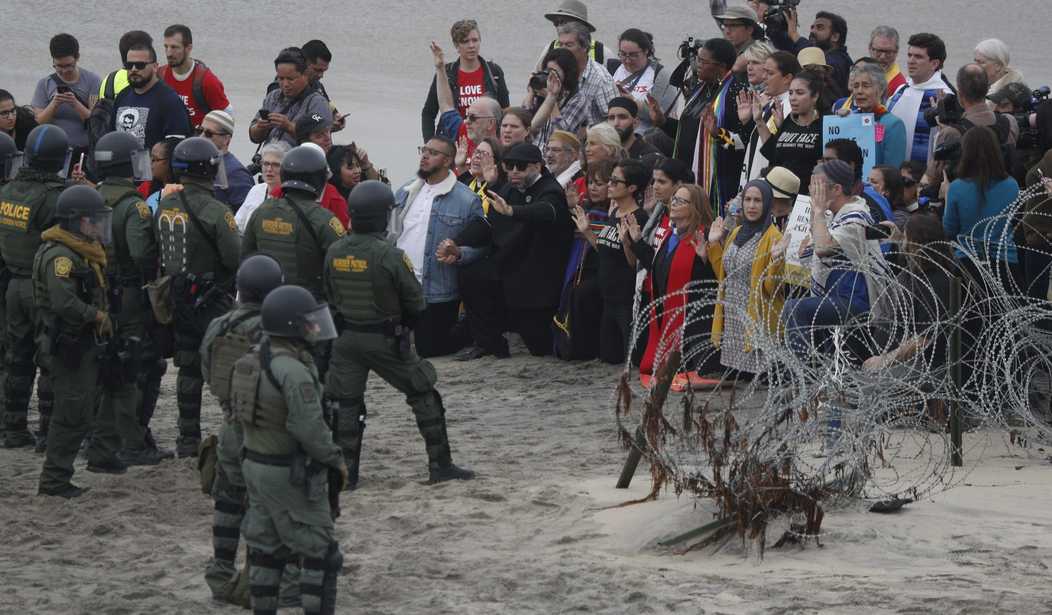WASHINGTON — Special counsel Robert Mueller has impaneled a grand jury in the investigation into Russian campaign interference, already reportedly issuing subpoenas as a bipartisan effort launched in the Senate to protect the former FBI director.
The Wall Street Journal reported that the grand jury “began its work in recent weeks,” signaling that the probe, buoyed by a handpicked team of 16 prosecutors with experience including money laundering and organized crime, is “growing in intensity” and is expected to continue for months. NPR reported that Mueller is using a grand jury in D.C.
Reuters reported that the grand jury has issued subpoenas in a June 2016 Trump Tower meeting in which Donald Trump Jr., Jared Kushner and Paul Manafort met with Russian lawyer Natalia Veselnitskaya, lobbyist Rinat Akhmetshin, publicist Rob Goldstone and others after Goldstone promised damaging information on Hillary Clinton from the Russian government.
And CNN reported that Mueller’s investigation has widened to include the Trump Organization and Trump family’s business dealings and “focus on possible financial crimes, some unconnected to the 2016 elections.”
In an interview with a trio of NYT reporters at the White House last month, President Trump was asked if Mueller looking at his family finances would cross a “red line” of some sort: “I would say yes,” the president replied, calling it “a violation” as the probe is about Russia. The Guardian reported then that Mueller’s team and Trump’s bank, Deutsche Bank, had already been in contact and the bank expected subpoenas or other information requests.
“Grand jury matters are typically secret,” Trump’s counsel Ty Cobb said in a statement released by the White House after today’s WSJ story broke. “The White House favors anything that accelerates the conclusion of his work fairly… the White House is committed to fully cooperating with Mr. Mueller.”
“Former FBI Director Jim Comey said three times the president is not under investigation and we have no reason to believe that has changed,” Cobb added.
Comey testified at the Senate Intelligence Committee in June that one member of the FBI’s leadership team was concerned about telling Trump that he was at the time not the subject of the Bureau’s counterintelligence investigation “because we’re looking at the potential — again, that’s the subject of the investigation — coordination between the campaign and Russia, because it was President Trump — President-elect Trump’s campaign, this person’s view was, inevitably, his behavior, his conduct will fall within the scope of that work.” Comey said he went ahead and told the president because “I thought it was fair to say what was literally true.”
The leader who disagreed with Comey telling the president he wasn’t under CI investigation maintained that view. “His view was still that it was probably — although literally true, his concern was it could be misleading, because the nature of the investigation was such that it might well touch — obviously, it would touch the campaign, and the person at the head of the campaign would be the candidate,” Comey said.
Today Sens. Lindsey Graham (R-S.C.) and Cory Booker (D-N.J.) introduced legislation stipulating that a special counsel “may only be removed if the Attorney General files an action in the United States District Court for the District of Columbia and files a contemporaneous notice of the action with the Committee on the Judiciary of the Senate and the Committee on the Judiciary of the House of Representatives.”
The motion to fire the special counsel would then be heard by a panel of three judges, and a special counsel could only be removed “after the court has issued an order finding misconduct, dereliction of duty, incapacity, conflict of interest, or other good cause, including violation of policies of the Department of Justice.”
Booker said the Special Counsel Independence Protection Act (SCIPA) would ensure that investigators like Mueller are “never be subjected to interference or intimidation because of where an investigation takes them.”
“I think this is a good check and balance, both for today and in the future. We should all be interested in making sure that special counsels have oversight. Special counsels must act within boundaries, but they must also be protected,” Graham said. “Our bill allows judicial review of any decision to terminate a special counsel to make sure it’s done for the reasons cited in the regulation rather than political motivation. I think this will serve the country well. I look forward to working with my Democratic and Republican colleagues to make this law.”
Sen. Sheldon Whitehouse (D-R.I.), a co-sponsor of the bill, added in a statement, “The American people must be able to trust that special counsel Mueller can follow the facts wherever they lead. We will ensure that they can.”
Sen. Jeff Flake (R-Ariz.) told MSNBC earlier in the day that if Trump moved to fire Mueller at this point, Congress would use its power to appoint an independent counsel to continue the probe.
“If he were to be removed, however it is done, by the assistant attorney general or a new one, Congress would assert its prerogatives. And that would mean hiring a special prosecutor,” Flake said. “That might even be Bob Mueller.”









Join the conversation as a VIP Member